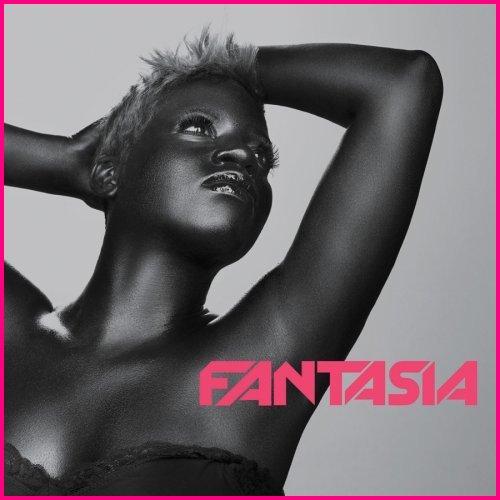Joshua Cohen on Jakov Lind at Open Letter
 This jumped right off the e-page at me as one of those things that readers of this site would/will LOVE if/when they found/find out about it.
This jumped right off the e-page at me as one of those things that readers of this site would/will LOVE if/when they found/find out about it.
The great Joshua Cohen wrote an introduction to Lind’s Landscape in Concrete, which Open Letter Books re-published last year. On the occasion of the third anniversary of Lind’s passing, also, OLB’s even more recent (ie this January) reissue of Lind’s Ergo, they have made JC’s introduction to Landscape available online. Here is paragraph one.
“Jakov Lind” was a pseudonym for a man without a name. According to the rolls of a host of long-since defunct regimes, “Lind” was once known as Jakov Chaklan, Palestinian Jew (this was back when you could be one of those), and before that he was Jan Gerrit Overbeek, Dutch bargehand, which was the Nazi-era identity of Heinz Landwirth, Viennese. The author of Landscape in Concrete—and also of the stories of Soul of Wood, the novel Ergo, two other novels, another collection of stories, an Israeli travelogue, three memoirs, numerous stage and radio plays, and occasional poetry—might have been all of these people, and he might have been none. This is not meant “deconstructively,” however, or in a spirit of relativism. What’s being asserted here, at the beginning, is trauma. Is not knowing what to call one’s self. Is not having a private name for one’s self.
Now that you’re interested, go read the rest.
Stuff White Guy Likes
 Do you know Tolstoy’s “Three Hermits”? You should.
Do you know Tolstoy’s “Three Hermits”? You should.
A Joshua Cohen double-shot– Reviewing Gilbert Sorrentino’s The Abyss of Human Illusion for Bookforum; and at Tablet:
And now it’s Rumpus Double-up Interview Sex Time- for Recession Sex Workers #8, Stephen Elliott interviews Antonia Crane; and Steve Almond interviews his former student Jason Mulgrew.
This Santa Fe Institute economist claims that 1 in 4 Americans is employed guarding the wealth of the rich.
Joanna Scott on J.M. Coetzee at The Nation, because hey why not?
And now, in what I’m more or less convinced will be officially known as NYTea Time: Will Blythe likes Bolano’s Monsieur Pain; Joel Brouwer goes high-low on the new Tony Hoagland; Geoff Dyer is unimpressed by the new DeLillo (this seems to be the general trend of opinion, but I still want to see for myself; also, in the opening lines of the review, Dyer sketches his view of the best and worst DeLillo; to the extent that my two favorite DeLillo books (Mao II and Cosmopolis) are the ones he thinks are the worst, may be safe to say our tastes may diverge); Deborah Solomon talks to Douglas Coupland about Vancouver; and Francine du Plessix Gray on the new Amy Bloom collection, Where the God of Love Hangs Out. She likes it quite a bit–no surprise there. I’ve never heard a cross word said about Amy Bloom, who seems to be one of the highest-regarded contemporary writers I’ve never quite gotten around to reading. There’s a copy of her book Come to Me that I can see on my shelf from where I’m sitting. Tell me friends, is it high time?
What’s New, Joshua Cohen?

Well, since you asked. There’s new fiction (“Mark the Sun”) at The Brooklyn Rail plus a, uh, “non”fiction piece at n+1: “Famous Infamous Jews.”

Inspired by 300+ comments thread on Blake Butler’s now-infamous “James Joyce Does Not Exist” post, Kyle Minor and I had a critical conversation about Joshua Cohen’s A Heaven of Others. It’s up at the Rumpus as of this morning.
Minor: Reading A Heaven of Others, I felt […] there was that same kind of shock one gets when entering into certain works of Faulkner or Woolf or Joyce, where you simultaneously are thrilled and a little intimidated by the surface, but it doesn’t take long to just fall into it, since the text is teaching you how to read the text. It’s been so long since I’ve discovered a book like that, it feels new, but then one realizes that it’s also old-fashioned, and mourns that it’s old-fashioned.
You know how I’m always going on about Joshua Cohen’s genius? Sure you do. “Oh he wrote something about Jews again,” “oh his books are awesome,” “oh he cooks the best Thai fish balls”–blah blah blah. Well here’s the proof everlasting, kids, as if you needed it. This is what it looks like when JC forwards you a Youtube video.
httpv://www.youtube.com/watch?v=518XP8prwZo
bright fish hitch coop and then some: a roundup

Susie & Aretha Bright answer more sex questions at Jezebel, including “I’m a girl who comes too fast.”
Stanley Fish on reforms to college composition courses. And then, a little later, a follow-up column on the reactionary, ill-informed comments directed at him for writing the first column.
Up from Our Own Comments Threads– Ed Champion’s Hate Mail Dramatic Reading Project now includes the letter Kyle Minor posted yesterday in the comments on Catherine Lacey’s post about said project.
Over at Coop’s place, there’s a Spotlight on Danielle Collobert’s “Notebooks.” >> he just left — when he leaves I never know when I’ll see him again — always chance encounters — or nearly — today I asked myself what little errors we’ve let come between us — I don’t know yet — I can barely guess — <<
And Christopher Hitchens remembers Ted Kennedy, as only William Logan can. I know this one sounds like the boring one, but it’s actually the most interesting of what I’ve posted here (except maybe the girl who comes too fast) and it’s utterly unlike any of the other six hundred Kennedy memorials you read or else avoided reading last week.
Actually, Hitch is probably only as interesting as the Benjamin De Casseres piece by Joshua Cohen in Tablet, which I blogged about here the other day (“Hope is the promise of a crucifixion”), but for some reason get the feeling nobody saw. So here it is again.
“Hope is the promise of a crucifixion.”

So wrote Benjamin De Casseres–a lost legend of the early/mid-20th–a man about whom I knew nothing until today, when I read the latest Tabletmag.com piece by the great Joshua Cohen (whose “Bridge & Tunnel (& Tunnel & Bridge)” will be out from The Cupboard Pamphlet later this year). Here’s a little taste of the article. Click-thru anywhere below for smorgasbord.
What’s better than a book-themed cafe? An island.
So the plan for today was to take the 1pm ferry from Central HK to Lamma Island, so I could check out the Bookworm Cafe, a vegetarian restaurant and supposed literary haunt. I planned to spend most of the afternoon there, and so went out loaded for bear- Joshua Cohen’s A Heaven of Others, the Selected Poems of George Oppen, Bruno Schulz’s Sanatorium Under the Sign of the Hourglass, and some of my own stuff to maybe work on. So I actually manage to finish Cohen’s book–which I’ve been rocking through and loving for the past week–on the ferry ride over, then I get to the pier at Yung Shue Wan, and lo and behold, the bookstore is closed. No explanation why. Some woman says it’ll be open tomorrow–for all the good that does me, assuming it’s even true. Now what? Well, it turns out that this island I’m on is, like, an island, with all the things you’d expect to find on an island, such as beaches, woods, mountains, ancient burial sites, and a seaside trail that leads you through all of it. So me, Josh, George, and Bruno hiked from Yung Shue Wan to the other main village, Sok Kwu Wan. It was listed as a 90-minute hike, but I got up to some quality dithering, so it took me longer. Then at SKW I took repast of iced milk tea+coffee followed by a bowl of shrimp dumplings in soup, all in time to catch the 4:05 ferry back to Central. All in all, a stellar day, though it wasn’t exactly a victory for books. Maybe this is something books should think about next time before they fuck with me. To see about two dozen more pictures of my day-trip, with nary a book in sight, click the sentence above or else right here.
July 30th, 2009 / 9:26 am
Quick roundup & then I’m outta here

By this time tomorrow I’ll be at JFK airport, probably getting grilled about my associations by humorless Shin Bet agents. That’s right, kids, they’re sending me to Israel, so this is your last mess of links to my regular obsessions until at least the 15th. Keep my side of the bed warm, wouldja?
MOBYLIVES announces new occasional feature on “unusual book events given by something other than the usual suspects” to be written by MHP-author Zachary German. I’m not sure what any of that means, exactly, but Zachary’s first post is about Dennis Cooper’s conversation with Tony O’neill, which took place at the Bryant Park Reading Room the week of BEA. Also, Time Out New York digs Ugly Man. Also^2, Dennis posted some really good vintage gay porn on his blog yesterday.
Pieces from Mathias Svalina’s “Play” are now available at This Recording. Other pieces from “Play” are available in the current issue of The Cupboard Pamphlet. A future issue of TCP, btw, will feature Joshua Cohen, who has an essay in the current issue of New Haven Review (heads up it’s a PDF): Hung Like an Obelisk, Hard as an Olympian: An alphabet of English-language literature in Paris.
A few weeks ago Dave Eggers gave a talk in NYC wherein he promised to personally email a reassurance that print isn’t dead to anyone who wanted one. He didn’t count on that promise getting leaked to the web, and then being flooded with emails. So personally sort of fell out of the question, but he did send a pretty amazing mass email out, about the future of indie publishing and newspapers. Someone else on this site should/will spend some more time parsing what he said, but in the meantime, Gawker has the full text of his letter.
Finally, the NYT asks “Is Slam in Danger of Going Soft?” There are two possible answers: First, obviously, is “who cares?” The more nuanced approach, however, would be to say, “well, if the Times is covering it now, then the answer must be ‘yes–two and a half years ago.'” Either way, there’s really no good reason to click that link.
Later, kids.
Giant Talks: Joshua Cohen interviewed by Lily Hoang
 I first came across Joshua Cohen’s work a couple years ago at AWP. I walked by the Starcherone Books table and asked editor Ted Pelton which book he would recommend. He handed me a bunch, and luckily, among those was Cohen’s A Heaven of Others. What struck me then (and continues to strike me every time I read his work) is what an incredible badass he is. For one, he’s an amazing writer. His words are quite literally delicious. But beyond that, he’s the most prolific writer I know (and I know some crazy prolific writers!). Still shy of thirty, he’s got four books in print, one on the way from Dalkey Archive, and tons more sitting either on a physical or virtual shelf. Cohen is a powerhouse, but don’t take my word for it. Go buy one of his books. You won’t regret it.
I first came across Joshua Cohen’s work a couple years ago at AWP. I walked by the Starcherone Books table and asked editor Ted Pelton which book he would recommend. He handed me a bunch, and luckily, among those was Cohen’s A Heaven of Others. What struck me then (and continues to strike me every time I read his work) is what an incredible badass he is. For one, he’s an amazing writer. His words are quite literally delicious. But beyond that, he’s the most prolific writer I know (and I know some crazy prolific writers!). Still shy of thirty, he’s got four books in print, one on the way from Dalkey Archive, and tons more sitting either on a physical or virtual shelf. Cohen is a powerhouse, but don’t take my word for it. Go buy one of his books. You won’t regret it.
— Lily Hoang
LH: Something that really strikes in about your writing is the very distinctive voice your characters have. In A Heaven of Others (from here on out known as Heaven), the narrator has an extremely urgent voice, one that compelled me to read faster & faster, until I was practically skimming. (Then of course, I had go back and read the whole thing over again to really savor the language!) Cadenza for the Schneidermann Violin Concerto (known as Cadenza), however, has a much more patient narrative voice. Can you tell me more about the development of these narrators in particular? Please feel free to talk about your other works as well.
JC: The voices of both my novels are fictions within fictions, and, as that, they’re opposites: The voice of A Heaven of Others is that of 10-year-old Jonathan Schwarzstein of Tchernichovsky Street, Jerusalem. The voice of Cadenza for the Schneidermann Violin Concerto is that of Laster, an octogenarian, perhaps nonagenarian, concert violinist from eastern Austro-Hungary. Again, both are fictions, meaning both are ultimately Me. I think what I’ve done in all my books so far comes, primarily, from speech rhythm. The rhythm of how I want to speak. How I speak to myself. As for echoes, A Heaven of Others derives from poetry, especially 20th century Hebrew poetry (Dan Pagis), and German-Jewish poetry (Paul Celan), while Cadenza comes from comedy, and despite its typographical trickery owes more to the history of the novel, and much, specifically, to Saul Bellow.
